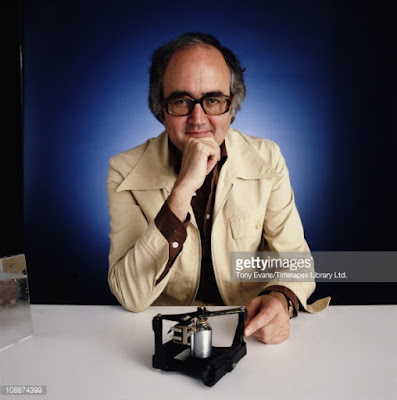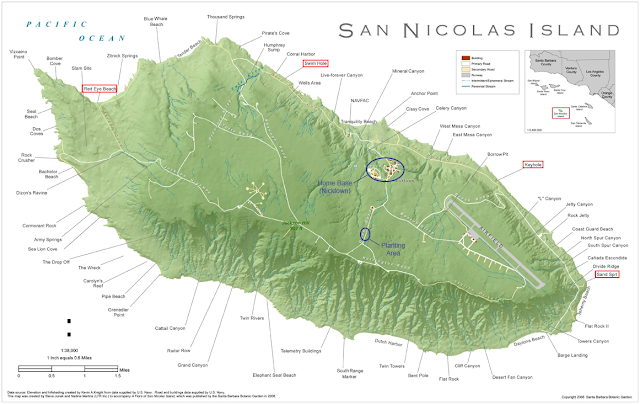Moving Forward by Looking Back
My sixth grade teacher liked to have fun. We did improvised comedy skits, played math games and had a camp-out in the Headmaster's back yard. It was a fairly snowy winter, and on several days he took the class out to go sledding on some of the campus's hills. The whole class, except for me.
I don't remember exactly why I didn't want to go at first, but I do remember why I continued staying in as the days went on. I was having too much fun reading. In particular, I'd started reading ahead in our history textbook, because I was fascinated by the story it was telling. One part I remember especially was when Cortez met the Aztecs at just the right time for them to think he was their god, Quetzalcoatl. I remember thinking how great a plot twist that would have made if the story had been fiction.
I've always loved history, be it world history, family history, sports history or whatever. I've always loved digging through libraries and resource documents to find the full stories behind things. And I've always loved it when people could tell those stories in new and interesting ways. In my teenage years, one of my heroes was James Burke, whose documentary series Connections and The Day the Universe Changed blew my mind. They came out around the same time as the original Cosmos, but for my money, not even Carl Sagan could top James Burke.

There were times when I thought about trying my hand at that kind of thing. At one point, during my brief time in the Film & TV graduate program at UNC, I thought maybe I could stay in the area and work for South Carolina Educational Television, which had brought James Burke's shows to the US. But it was not to be. The notion didn't come back until I started writing historical fiction. Liberty Girl may have been inspired by my grandmother's remembrances, but I quickly discovered the joys of figuring out what music an African-American teenager in segregated Baltimore might listen to, or what the city streets looked like at the height of the influenza pandemic.
Now my chance to write history has arrived. It wasn't something I'd thought of doing myself, but at last year's Homeschool Conference in Ontario, my publisher pitched me the idea of doing a set of Mathematical Biographies. For the past fifteen months, I've been reading and researching, gathering information and seeing what looked best. The first step was deciding exactly who I wanted to write about. I knew almost immediately that I wanted both men and women, from different times and different parts of the world. My series was not just going to be about a bunch of white men. But then, I also wanted all the biographies to have a common theme or an overarching idea. What I've decided is that I want to write a series that can encourage readers to pursue the mathematical subjects the world is going to need in the future. That includes some pretty advanced ideas like fractal geometry and chaos theory. I hope I can explain them clearly enough for a young audience - give them a taste of the concepts that might inspire them to explore further on their own.
The other thing I hope I can do is find enough interesting bits of fun weirdness to include along the way. Life is full of fun weirdness, but it doesn't always get written down. James Burke was a master at finding these things. If I can put even a fraction of what he did into my own books, I'll count it as a success. And I'm off to a good start - for example, I've already found out about the time Blaise Pascal was supposedly cursed by witchcraft as an infant, and also about the pet owl Florence Nightingale kept before she went off to Crimea.

That doesn't mean I'm giving up fiction. I still have plenty of stories to write - some of which come out of my Mathematical Biographies research, actually. But this is a part of my writing that's never gotten its chance to come out and show what it can do. I'm grateful the folks at Royal Fireworks came up with the idea of having me do it.
In my more whimsical moments, I still imagine myself going full-on James Burke and making a Mathematical Biographies TV show someday. But really, I'll just be happy writing them. Whatever happens to them later is something I can worry about later.
I don't remember exactly why I didn't want to go at first, but I do remember why I continued staying in as the days went on. I was having too much fun reading. In particular, I'd started reading ahead in our history textbook, because I was fascinated by the story it was telling. One part I remember especially was when Cortez met the Aztecs at just the right time for them to think he was their god, Quetzalcoatl. I remember thinking how great a plot twist that would have made if the story had been fiction.
I've always loved history, be it world history, family history, sports history or whatever. I've always loved digging through libraries and resource documents to find the full stories behind things. And I've always loved it when people could tell those stories in new and interesting ways. In my teenage years, one of my heroes was James Burke, whose documentary series Connections and The Day the Universe Changed blew my mind. They came out around the same time as the original Cosmos, but for my money, not even Carl Sagan could top James Burke.

There were times when I thought about trying my hand at that kind of thing. At one point, during my brief time in the Film & TV graduate program at UNC, I thought maybe I could stay in the area and work for South Carolina Educational Television, which had brought James Burke's shows to the US. But it was not to be. The notion didn't come back until I started writing historical fiction. Liberty Girl may have been inspired by my grandmother's remembrances, but I quickly discovered the joys of figuring out what music an African-American teenager in segregated Baltimore might listen to, or what the city streets looked like at the height of the influenza pandemic.
Now my chance to write history has arrived. It wasn't something I'd thought of doing myself, but at last year's Homeschool Conference in Ontario, my publisher pitched me the idea of doing a set of Mathematical Biographies. For the past fifteen months, I've been reading and researching, gathering information and seeing what looked best. The first step was deciding exactly who I wanted to write about. I knew almost immediately that I wanted both men and women, from different times and different parts of the world. My series was not just going to be about a bunch of white men. But then, I also wanted all the biographies to have a common theme or an overarching idea. What I've decided is that I want to write a series that can encourage readers to pursue the mathematical subjects the world is going to need in the future. That includes some pretty advanced ideas like fractal geometry and chaos theory. I hope I can explain them clearly enough for a young audience - give them a taste of the concepts that might inspire them to explore further on their own.
The other thing I hope I can do is find enough interesting bits of fun weirdness to include along the way. Life is full of fun weirdness, but it doesn't always get written down. James Burke was a master at finding these things. If I can put even a fraction of what he did into my own books, I'll count it as a success. And I'm off to a good start - for example, I've already found out about the time Blaise Pascal was supposedly cursed by witchcraft as an infant, and also about the pet owl Florence Nightingale kept before she went off to Crimea.

That doesn't mean I'm giving up fiction. I still have plenty of stories to write - some of which come out of my Mathematical Biographies research, actually. But this is a part of my writing that's never gotten its chance to come out and show what it can do. I'm grateful the folks at Royal Fireworks came up with the idea of having me do it.
In my more whimsical moments, I still imagine myself going full-on James Burke and making a Mathematical Biographies TV show someday. But really, I'll just be happy writing them. Whatever happens to them later is something I can worry about later.



Comments